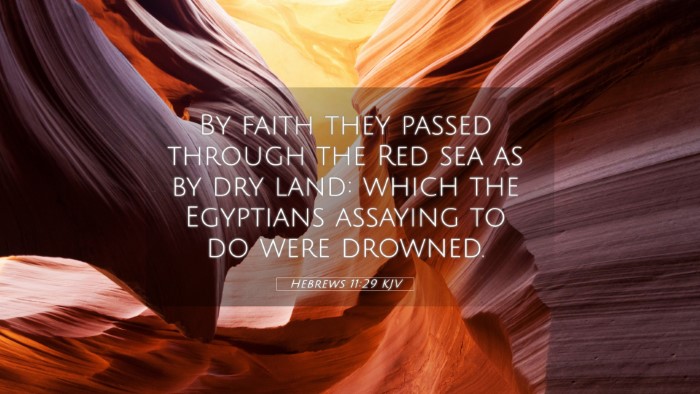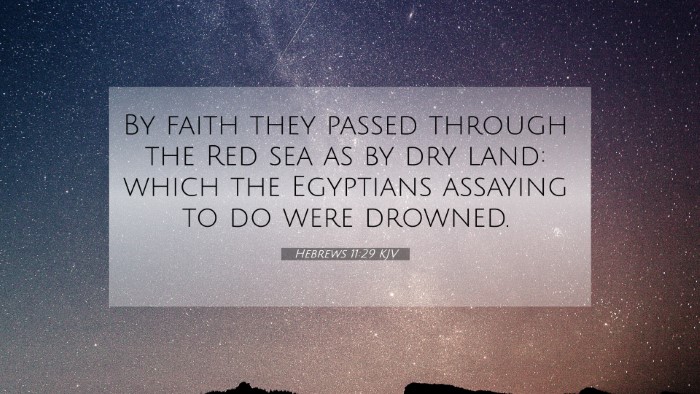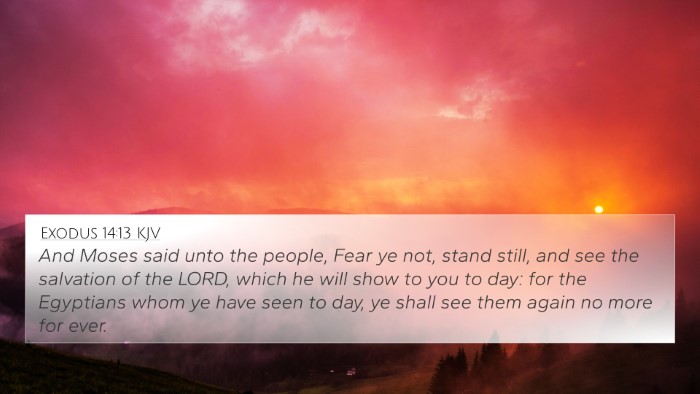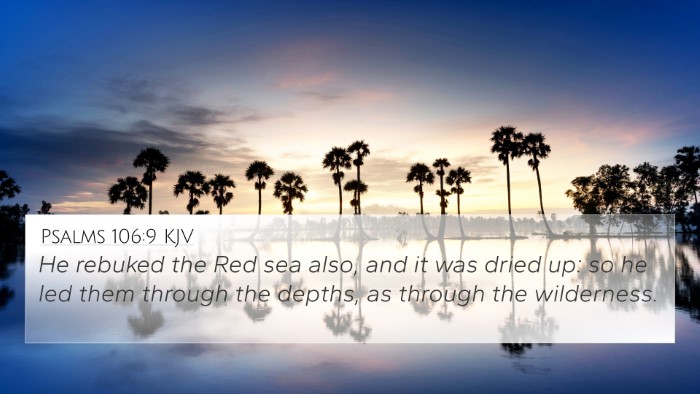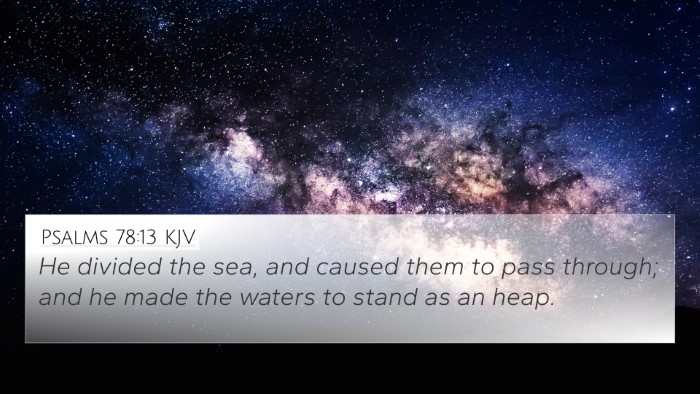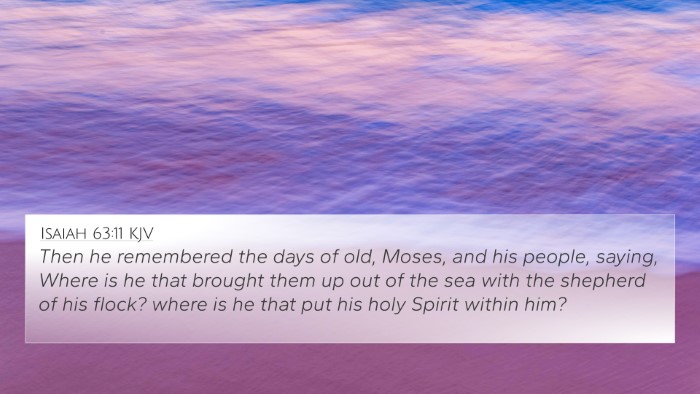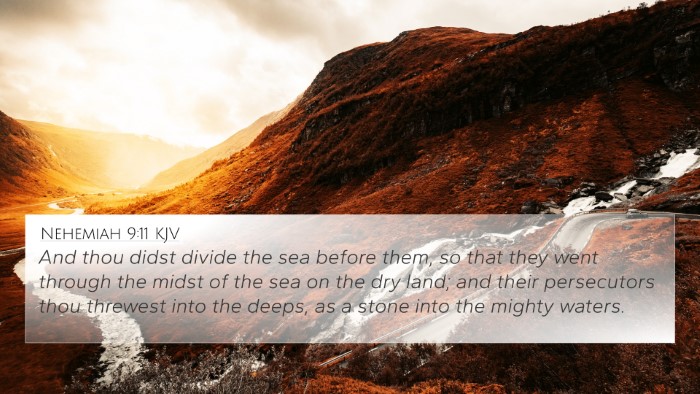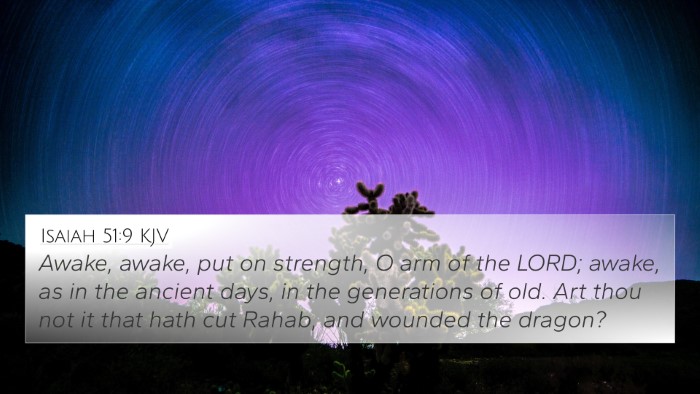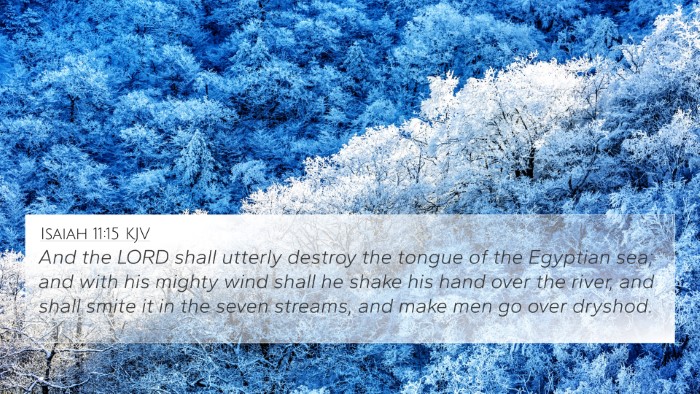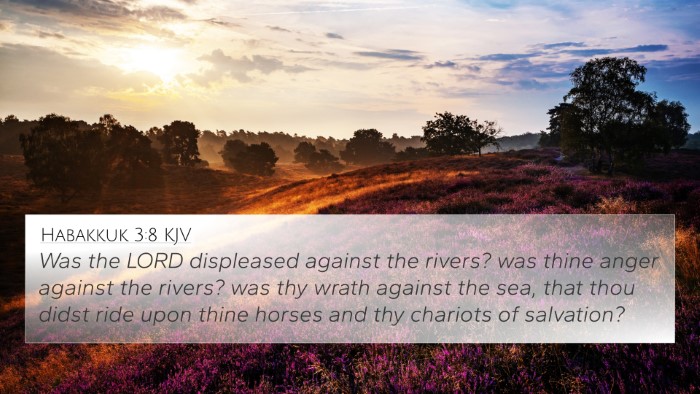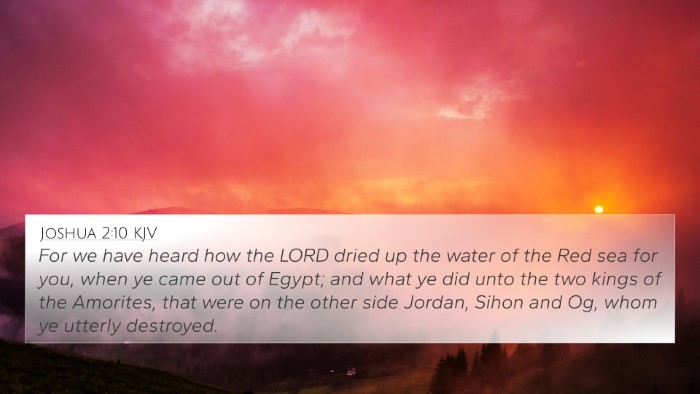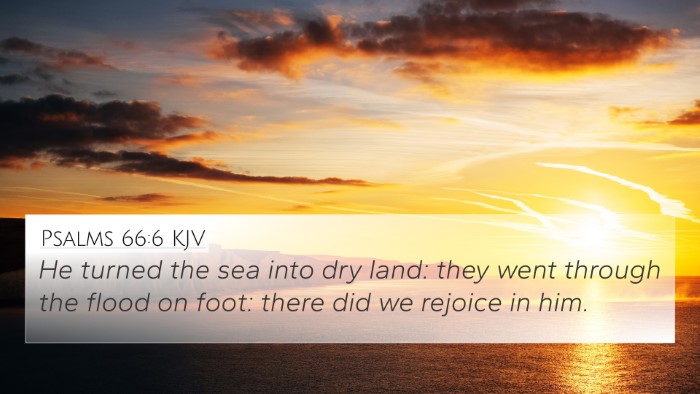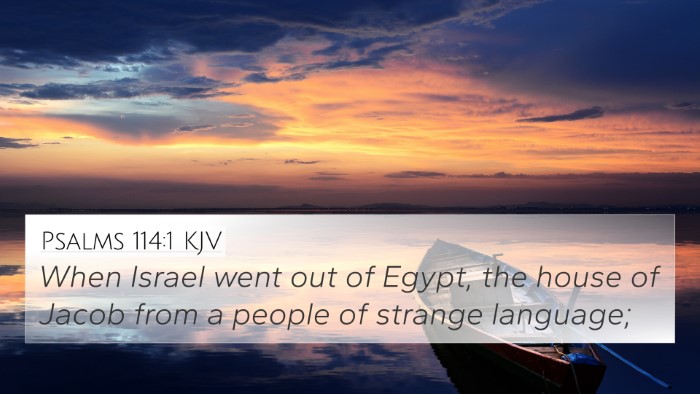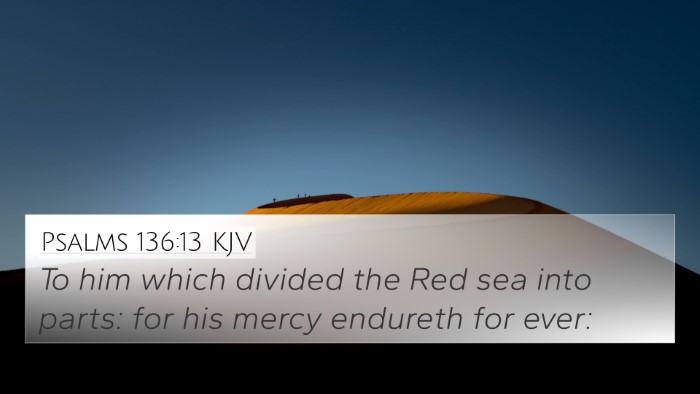Understanding Hebrews 11:29
Hebrews 11:29 reads: "By faith they passed through the Red Sea as by dry land: which the Egyptians assaying to do were drowned." This verse highlights a moment of profound faith and divine intervention in the history of Israel. To fully grasp its meaning, let us explore insights from renowned public domain commentaries by Matthew Henry, Albert Barnes, and Adam Clarke.
Summary of Insights
This verse is situated within the "Hall of Faith" in Hebrews Chapter 11, where the author enumerates the acts of faith by the Patriarchs and other notable figures in the Old Testament. It speaks specifically about the event of the Israelites crossing the Red Sea, an iconic moment of deliverance from the Egyptian army. Below, we delve into the commentary insights:
Matthew Henry's Commentary
Matthew Henry emphasizes the miraculous nature of the Israelites’ passage through the Red Sea. He notes that it was not simply an act of bravery or cunning but a profound act fueled by faith. The Israelites had to trust in God’s promise and active presence. Henry underscores the contrast between the faith of the Israelites, which enabled them to walk on dry ground, and the fate of the Egyptians, who pursued them and met destruction. This illustrates the overarching biblical theme of faith leading to salvation, while unbelief results in judgment.
Albert Barnes' Commentary
Albert Barnes highlights the necessity of faith in God during distressing times. He points out that the Israelites obeyed God’s command to stand firm and move forward despite the daunting circumstance of the divided sea. The act of walking through on dry ground was a testament to their faith. Barnes also draws attention to the Egyptians, noting their pursuit as an example of folly when one chooses to disregard divine warning. The drowning of the Egyptians serves as a sobering reminder of the consequences of opposing God's will.
Adam Clarke's Commentary
Adam Clarke elaborates on the phenomenon of the parted sea, focusing on the faith that was required to navigate such an extraordinary event. He emphasizes that this act was not only about crossing from one side to another but also symbolized a spiritual journey from oppression to freedom. Clarke stresses the importance of remembrance of such events, advocating for the Israelites to have a deep understanding of their history as a source of faith and courage in future tribulations.
Thematic Connections and Cross-References
Exploring the themes within Hebrews 11:29, we can also identify relevant cross-references that enhance our understanding:
- Exodus 14:21-22: Describes God parting the Red Sea, affirming the miraculous nature of the event.
- Psalm 78:13: Reflects on God's power in parting the waters and leading His people through safely.
- Isaiah 43:16: Emphasizes God as the creator of the way through the sea, reinforcing the theme of divine intervention.
- 1 Corinthians 10:1-2: Indicates that the crossing of the Red Sea serves as a type of baptism, connecting it to Christian faith.
- Hebrews 11:28: Precedes the mentioned verse, highlighting the Passover and deliverance aspect.
- Exodus 15:4: Illustrates God’s victory over the Egyptians in the Song of Moses, emphasizing the triumph of faith.
- Romans 8:31: Relates to the idea of God being for us, mirroring the faith in deliverance seen in Hebrews 11:29.
Cross-Referencing Biblical Texts
The connections between Hebrews 11:29 and its cross-references illustrate the rich tapestry of biblical narratives interwoven through themes of faith, deliverance, and God’s omnipotence. The idea of scriptural cross-referencing allows readers to explore more profound spiritual truths and the intricate relationships between different biblical events.
Using Cross-References for Deeper Study
Utilizing tools for Bible cross-referencing can enhance one's study significantly. Below are some suggested methods:
- Bible Concordance: A useful resource for finding parallel scriptures based on keywords.
- Bible Cross-Reference Guide: Helps identify thematic connections across scripture.
- Cross-Reference Bible Study: Involves studying multiple verses that correlate to a primary verse for deeper insight.
- How to Use Bible Cross-References: Techniques that guide readers on effectively linking scriptures for comprehensive understanding.
Conclusion
The exploration of Hebrews 11:29 goes beyond a mere historical reference; it is an invitation to recognize the power of faith in shaping one's spiritual journey. By understanding this verse through the lens of renowned commentaries and by employing effective cross-referencing methods, readers can develop a richer comprehension of the overarching narrative of the biblical text.

